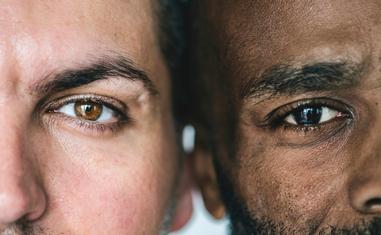The views expressed in our content reflect individual perspectives and do not represent the authoritative views of the Baha'i Faith.
Around the world, in all kinds of cultures, most of us live in patriarchal societies, where typically “positions of dominance and privilege are primarily held by men.”
Patriarchy is a far-reaching social system, encompassing a “a worldview, arrangements about how we live as humans with each other on this planet, implicit blueprints for what kinds of institutions we would create, and guidelines for what to do with our young to prepare them for the system itself.” It can take on varied forms such as “families or clans controlled by the father or eldest male or group of males” or “broad social structures in which men dominate over women and children.”
The Baha’i teachings claim that patriarchy holds humanity back, because it fosters and sustains inequality between women and men, impeding our collective progress. Abdu’l-Baha, in a speech he gave in Montreal in 1912, said:
The world of humanity is possessed of two wings — the male and the female. So long as these two wings are not equivalent in strength the bird will not fly. Until womankind reaches the same degree as man, until she enjoys the same arena of activity, extraordinary attainment for humanity will not be realized; humanity cannot wing its way to heights of real attainment.
RELATED: Girl Dad: How Fathers Confront Sexism Spiritually
Research supports this claim, because the progress of a society when women are excluded can be measured. For example, a previous BahaiTeachings article covered a recent large-scale study of the United States scientific workforce. In this setting systematic barriers prevent women’s equal participation. Excluding women has the measurable effect of excluding a greater diversity of ideas. This affects progress by narrowing which topics get researched, means some research is never performed at all, and causes science to end up addressing only a limited set of issues benefitting only a few communities.
The Baha’i teachings add yet another important dimension to consider – that men specifically are held back by the continued gender inequality. Abdu’l-Baha said: “As long as women are prevented from attaining their highest possibilities, so long will men be unable to achieve the greatness which might be theirs.”
This flips the issue on its head. It may also seem counterintuitive. If men have dominance and privilege from holding women back, wouldn’t men benefit? How can women suffering inequality disadvantage men? What evidence shows how this might happen?
Science is also helpful here, and we can discuss one example from a new study we recently encountered, based on research hosted at Vrije Universiteit Amsterdam. Interestingly, it came from a context we are not personally living in, and where we did not initially expect a prominent theme to be that men are harmed by their male-dominated setting and its exclusion of women and their perspectives from how their society is organized and run.
This research explored the question of why male Shia Muslim citizen volunteers kept fighting against Sunni Muslim militia groups in Iraq. Consideration of gender inequality as an explanatory factor in this kind of sectarian conflict setting can get overlooked. Some commentators may wish immediately to blame religious factors, without looking beneath the surface at what is actually going on. What was interesting about this Amsterdam-hosted study was that it kept an open mind. It allowed for the possibility that lesser explored “non-religious factors” could be present. It did not discount that religious beliefs might influence men’s original decisions to join militia. But it questioned whether such beliefs kept men “committed to their cause and militias.” These were volunteers, not soldiers. They could leave. Yet they kept returning to truly harrowing battle conditions. The researcher wanted to know why.
After living and traveling with many Shia Muslim volunteers for months on end, the social scientist conducting the research saw repeatedly that “practicing violence, displaying pleasure from such practices, and creating fear” in others had “become pleasant experiences” for some of these men. This kept them committed to conflict, not their religious beliefs. The researcher saw time and again that during “the heat of battle … the only thing remaining is the exhilarating moment of having the power over someone else and taking pleasure in violence.” He observed firsthand that “religious limitations and God” were “rarely there” in such moments. Instead there was only fear, anger, chaos, and “just trying to stay alive.” Between conflicts these volunteer fighters then used social media to share with each other, again for fun, images and videos they had recorded on their phones of their most horrific acts of violence.
The researcher also wanted to see if such behavior was limited to a small group – which meant that perhaps it could be explained as actions of just a minority of perhaps psychologically damaged or morally debased men finding pleasure in violence. To explore this, he followed as many militia members as he could. He also attempted to understand the wider social context of their lives.
He did not find violence was done by only small, isolated groups of men. Many men participated. The society was infused with violence. In this brutal setting, he realized these young men craved but did not find kindness from their society. They found it instead within their militia networks. This is his account:
“… many young men in the age range of 30 to 40 passionately remain committed to violence because the pleasure of violence is rooted in their larger desire to break away from structural limitations imposed on their lives. They come from a patriarchal society which controls most aspects of their lives.
The patriarchal society in Iraq centralized decision making in older men and elite members of communities. These young men cannot plan their future by themselves. They cannot marry whoever they like or even their choices of clothing, fashion and hairstyle are frowned upon by elders. They cannot easily engage in a business without prior arrangements in their social networks. They cannot migrate without prior confirmation from family and authorities. The patriarchal authority limits … their individual agency.
RELATED: Exploring the Distinctions Between Gender and Sex
Additionally, patriarchal society operates through power dynamics and it is aggressive rather than paternal, kind and caring. Therefore, militias provide a network where militants find paternal care. They find kindness through their unit mates.”
The researcher also took into account Iraq’s recent history of repeated conflict. He concluded:
“… pleasures of violence and killing are rooted in the broken fabric of compassion in a society or excessive patriarchal domination. … The repeated histories of violence produce individuals which could seek opportunities in combat to repeat the inhumanity done to them and take pleasures by feeling powerful.”
These men were shaped – and harmed – by a society where other men dominated their lives, and the lives of women. What this researcher found in Iraq seems to support another Baha’i principle that recommends the changes needed in our world to achieve international peace. This message from the Universal House of Justice, the democratically-elected global Baha’i leadership body, suggests that:
The denial of … equality … promotes in men harmful attitudes and habits that are carried from the family to the workplace, to political life, and ultimately to international relations. … Only as women are welcomed into full partnership in all fields of human endeavour will the moral and psychological climate be created in which international peace can emerge.
Discovering this Iraq research also brought back memories of two Manchester, England-based, U.S. professors. They were researching causes of domestic violence by men against women. Their research linked individual’s actions to attitudes and practices in the wider society. Essentially in society, ‘male’ identities can become malformed because boys and young men feel they must try to live up to ‘hyper-masculine’ aggressive, uncaring ideals set by fathers and role models in communities.
What seems to link these two sets of evidence, from settings as disparate as Iraq and the UK, is that patriarchy and related hyper-masculine ways of forming men’s roles in society can and do actively harm men.
This theme has also been taken up in the men’s movement, highlighting the ways men are systematically disadvantaged in contemporary societies, even where they are assumed to hold inordinate social and economic power. Yet problematically this movement can also attack feminist perspectives. The Baha’i teachings do not have this drawback, encouraging a broader vision that illuminates how the dynamics of gender equality are intimately bound up with the world’s progress and peace.
It seems vital then to foreground that harms are not just to be addressed for only men or only women in isolation. They concern and affect humanity as a whole. As the Baha’i teachings say, only when treated in an inclusive, comprehensive perspective, aiming to address possibilities and attainments for women and men, can progress and peace seemingly become achievable for all of humanity.


















Comments
Sign in or create an account
Continue with Facebookor